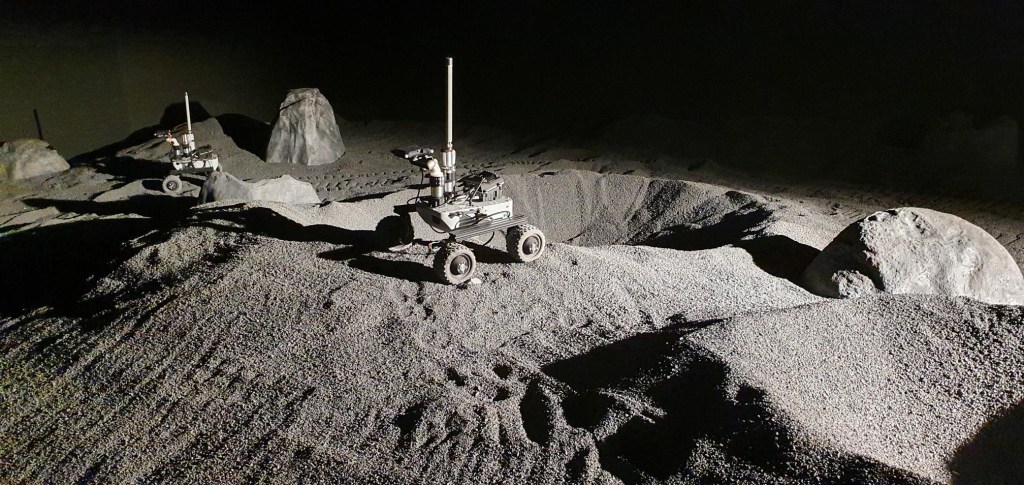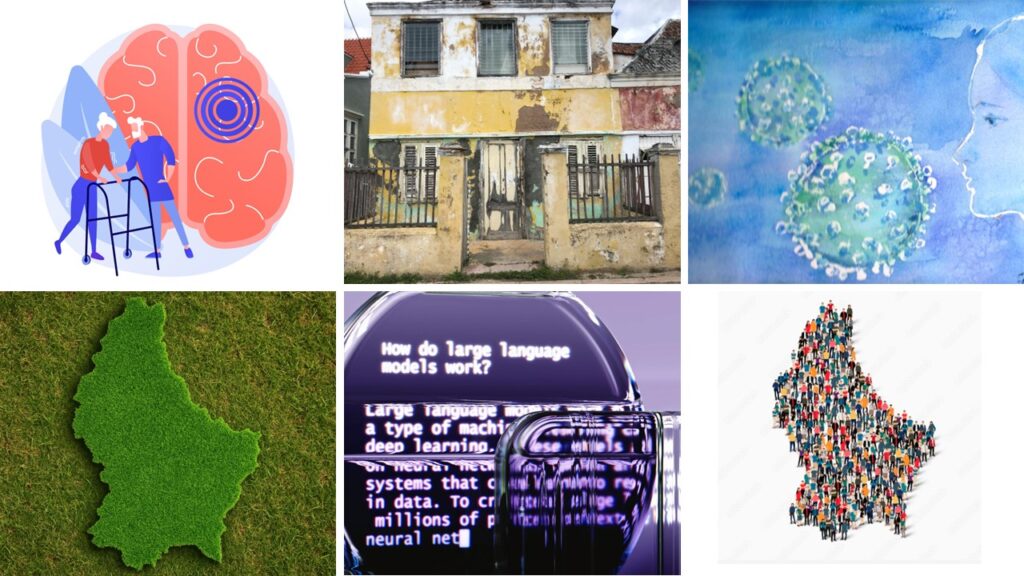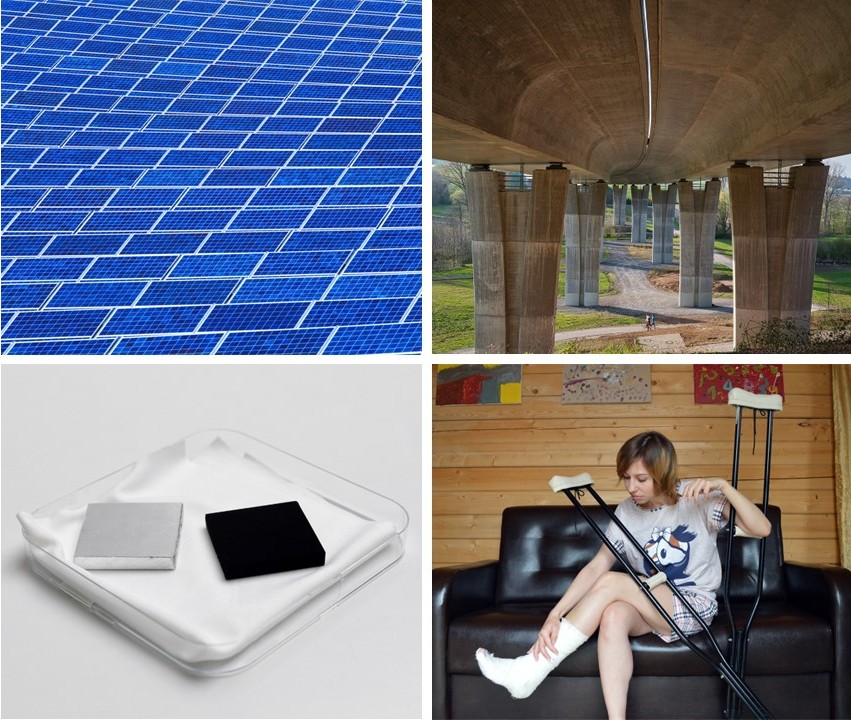Space sector in Luxembourg: 5 first start-ups supported
28 March 2022

Spaces resources start-ups support programme.
Following the first call for applications, the European Space Resources Innovation Centre (ESRIC) has selected the five start-ups to participate in the “Start-up Support Programme” (SSP) and begin their pre-incubation in April 2022.
Based in Esch-sur-Alzette in Luxembourg, ESRIC is Europe’s leading research and innovation centre in the field of space resources. Launched in partnership with the European Space Agency (ESA), the Luxembourg Space Agency (LSA), the Luxembourg Institute of Science and Technology (LIST), and Technoport (Luxembourg’s main technology incubator), ESRIC’s Start-up Support Programme (SSP) aims to support early-stage start-ups in the space resources sector, to develop their business models, attract their first customers and secure their first investments. Targeting terrestrial and/or space applications, the Start-up Support Programme is managed jointly with ESA.
The preincubation phase, which lasts three months, allows five selected start-ups to validate technical concepts and align them with market opportunities. They will benefit from in-kind support, both for the technical and commercial aspects of their project.
33 applications received from 17 countries around the world
The selection committee, composed in particular of members of ESRIC, Technoport, LSA, LIST and ESA, made a selection from 33 applications received from 17 countries around the world and covering the entire value chain of space resources, whether it be exploration, extraction, robotic technology, waste management, or manufacturing.
Minister of the Economy Franz Fayot said: “As part of the SpaceResources.lu initiative, the ESRIC programme to support young innovative companies further consolidates the pioneering role that the Grand Duchy plays in this field in Europe, while contributing to the attractiveness and international visibility of the Luxembourg space ecosystem.”
“We had the chance to meet the next generation of companies in the space resources sector, and were impressed by their enthusiasm, their innovative ideas and their entrepreneurial spirit. The 33 applications received, in a wide variety of fields, prove the interest in the sector and its economic potential,” explains Lari Cujko, in charge of the SSP at ESRIC.
Applications were evaluated on criteria such as project relevance to the space resource market and/or business, technology, business objectives, planning and execution, and project team. Five companies were therefore selected by the jury:
- Astroport Space Technologies: Astroport uses lunar dust – or regolith – and transforms it into bricks and materials for 3D printing lunar infrastructures. Their expertise is in the areas of 3D construction printing, site preparation, regolith processing and refining, robotics and space architecture.
- Anisoprint works on the development of equipment allowing 3D printing of tools, components, repair parts and structural elements made of composite materials in conditions of weightlessness and low gravity. Their project will support the development, extraction and use of space resources.
- Adventus Interstellar focuses on the design and construction of rover-landing systems based on tensegrity, meaning the “internal balance” of a structure due to the forces of tension and compression distributed. It wishes, thanks to this technology, to set up space deployment services at very low cost.
- Four Point aims to reduce the environmental impact of opencast mines through new technological innovations focused on monitoring, big data analysis, and autonomous machines for extraction and transportation.
- Orbit Recycling aims to remove space debris from Earth’s orbit and transport it to the Moon for recycling.

After this first three-month phase, the best project will be selected for a two-year incubation phase, during which the start-up can confirm its technical value proposition and further develop its business model. Additional technical and commercial support will be provided during the incubation phase, and funding in the form of a non-repayable grant of up to 200,000 euros will be allocated to the start-up.
A third residency phase lasting a maximum of 36 months will be possible for this start-up, in order to monitor technical developments and continue to grow sales and customers.
The Start-up Support Programme (SSP)
“The SSP programme is part of the perspective of consolidating an ecosystem of technical and commercial players,” says Mathias Link, ESRIC’s interim director. “It is one of the four pillars of ESRIC and will contribute to promoting effective collaboration models with start-up companies and the development of technologies dedicated to the use of space resources. This initiative is essential for the development of the sector and I am delighted with the interest that this first call has generated.”
It is expected that two calls for applications will be launched each year, from start-ups around the world, for the first phase of the programme. The first call was therefore closed on 23 January and a second call for applications will be launched in June 2022. It will be publicly announced during the Space Resources Week event which will take place from 3 to 5 May 2022 in Luxembourg.
Luxembourg and the space sector
Luxembourg has built a thriving space industry, currently comprised of 60 companies and research labs and including a growing number of firms that build solutions for the commercial exploration and utilisation of space resources. Approximately 800 employees work in the space sector in Luxembourg, in research and development, manufacturing and operation.
In just three decades, the Luxembourg space sector has grown from nothing into probably the most dynamic in Europe. The country is building an environment encouraging space entrepreneurship to make space dreams real.

SnT – LunaLab: https://ism.uni.lu/facility/luna-lab/
Space cooperation with France, European Space University for Earth and Humanity (UniversEH), start-ups’ programme, cutting-edge facilities as the LunaLab or the Zero-G Lab, etc.: Luxembourg is the right place to invest in space.










